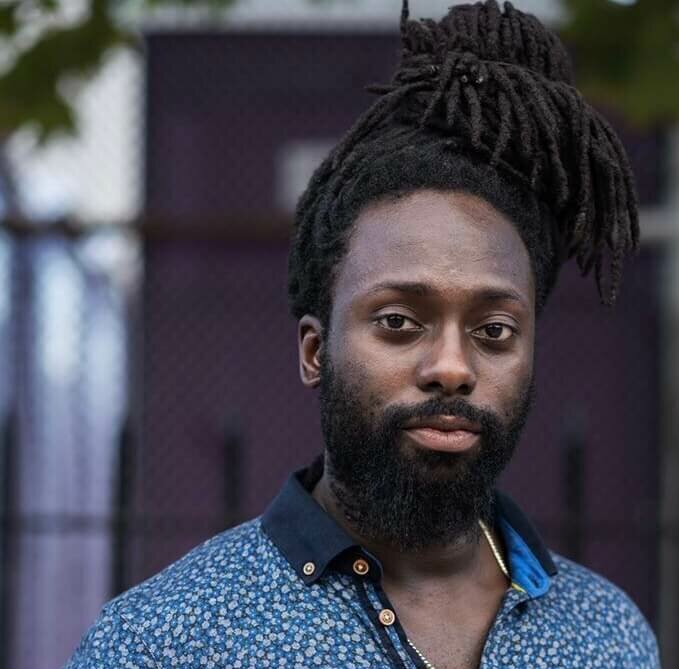How Christopher Ian Bennett Took a Marketing-Driven Approach to Start HectiQ Artists Talent Management
Just like showbiz, marketing is in Christopher Ian Bennett’s DNA. After years of seeing the creative industry from the corporate side as a creative director for the likes of Sprint and T-Mobile, the founder and CEO of Vancouver-based HectiQ Artists Talent Management started the company with his wife in 2022.
Bennett took his marketing expertise to HectiQ and is thriving as the agency’s leader, where he takes a unique approach to business. Bennett took time out of his day to share insights about starting HectiQ, why it’s different, agent advice for actors and more.
What was your first brush with the entertainment industry and what was your “aha” moment that made you want to be part of it?
I started in the advertising world. I was the executive creative director for Sprint and T-Mobile. I was directing and producing Super Bowl commercials and TV commercial content, and I really enjoyed it. I loved that part of the experience working with the actors, coming up with working with the writers, and all the different directors and the pieces. I just fell in love with that part of the creative process.
Subsequently, I was offered a job several years later as the executive producer of the Vancouver Film School. I would sit in on classes with the students, and I was largely responsible for helping bring an even larger brand out to the global audience. And by virtue of that, I got to be immersed in more Hollywood entertainment and the whole movie-making and filmmaking process.
I think it just kept affirming for me that I absolutely loved this and I wanted to be a part of it. And because of all the relationships that I had made in the casting world, it seemed like the right time in 2020 for my wife and I. We had talked about having an agency for a long time. We really loved working with actors and we wanted to do it, but starting your own company, an agency, is daunting. And she just said, “Shut up, quit talking about it. Let’s do it.” And so we did it.
What was the process like when it came to setting up your own agency? Was this all from connections, or was it grinding and letting folks know why they should work for you?
I think it’s a combination of a couple of things. There’s no traditional schooling for an agent. There’s nowhere you can really go and get your degree in this, so the pathway can be a little cloudy for agents. Typically, a lot of people work for an agent and start at the bottom and then eventually break out once they’ve learned the ropes. I came through a very non-traditional plan or a non-traditional pathway, but I was very fortunate.
Tyman Stewart is an icon in the North American agency world. He’s my mentor and someone who has been instrumental in helping me learn things, gave me exposure early on and helped me understand it a little bit better. He’s there for me when I have questions.
Ultimately, if you believe in talent, and you believe in showcasing that talent to the right people, and that they deserve to be on screen, and an audience will really respond to them, then that’s all you really need to know if you’re going to like the job. The other stuff falls into place through trial and error, through asking really great questions of your mentors and being in close proximity to the union who are always a wonderful resource.
How have you seen HectiQ grow from day one to the present?
I took a marketing approach in that we created a brand very early [on], and that was important to me. I understand the power of a brand, and I had done a lot of market research, and most agencies do not have a brand at all. So I made a decision early, “I didn’t want to do that. I wanted to do something different.” I wanted to make sure that our clients knew that when they were at HectiQ, it was different.
In that research, one of the critical pain points we identified with actors across North America was communication. They felt disconnected from their agents. They felt like they could never get time or get access to them. After that honeymoon period with your client goes on and agents are working hard, that relationship can deteriorate.
We created a system where we are talking to our clients constantly. We actually begin a WhatsApp social media thread with every client individually that never closes. Instead of living in a world where you’ve got to see if you can get some time with your agent, you always have it.
We’re always there. We’re a message away. We can jump on a video call, we can jump on an audio call, we can share some messages and talk about some ideas together. It never stops. I’m living in a very millennial-type social media agency model that seems to give my clients that feeling of, “I’m connected to my agent. My agent knows me, I know them, I can reach them and talk to them whenever I want.”
We put together a lot of workshops and a lot of important conversation sessions with our clients at no cost to them. We absorb the cost, we bring in some big casting directors, we bring in directors or subject matter experts on things every single month and we really bring our clients together. And then we’ve got a board of advisors that is unique that has been important to us. I run big decisions by them, and they’re pivotal in us helping to come up with a growth strategy, how to help treat every client uniquely, when to prioritize a type of role over another, what seasons, all that kind of stuff.
What was it like just trying to get the first several actors or your first crew and working with your first casting directors? What was that process?
We made a promise that we were going to set a standard for the caliber of actor that we brought in. We were not just going to build a roster of pretty faces. It was really important to us that anytime a casting director looked at a HectiQ Artists, they went, “Holy smokes, that’s an actor.” Even if they didn’t book, they would think, “I’d see that actor again,” or, “I’ve always got time to look at somebody who’s on the HectiQ artist roster,” because we just kept the bar really, really high.
And I think a lot of agencies, if they’re not sure about somebody, they’ll sign them anyway. And if they don’t book in a year or two, they end up probably releasing them. We don’t do that. We believe that if you are a great actor today, you’re going to be a great actor two years from now, four years from now. And it’s our job to get people as excited about you as we are.
Rachel Kramer was one of my very first clients, and she’s just unbelievable. Every actor that came after Rachel had that same magic for us and that same appeal, and someone that we were just so excited to work with.
What advice would you have for actors looking to sign with an agent that you can share?
Absolutely have a self tape ready. Demos are not nearly as interesting as a recent self tape. We want to see you in your element. We want to see the actor raw in the scene, in the moment, with just a reader. Demo tapes have distractions. There are other scenes and other actors around them. Maybe it looks cool if they were on a show or some kind of an indie film, but truly, the actors work in the year 2024, it’s happening on self tape. Right? That’s the name of the game. So we want to see that, have that ready to go, have a great headshot or two ready to go that is current.
Do not send large files that we have to download. Make it easy for the agents. Send us an unlisted YouTube link so I can click it wherever I am. If I’m sitting in traffic and in the backseat of my Uber, I can click on it, and I can watch it right then and there. I don’t have to open up my laptop and try to download a giant two-gigabyte file. Make it easy for the agent.
Be fearless, believe in yourself. Tell me your dreams and your goals as an actor. When I see an actor tell me, “I [want to] win an Oscar. I want to be a series lead in the next five years and I can do this.” When I see an actor that’s got confidence in himself, I love it. I think it’s really, really important.
And don’t forget to include your phone number on your resume. Too many actors don’t do that, and they don’t have an Instagram [where they’re] properly, easily found. I once tried to find an actor—who I still never found—[he] was number one on my list. I cannot reach this actor. [He’s] not checking [his] email and I have no phone number. There’s no Instagram, it’s obviously going to spam or something and I’m like, “I want to sign you. I think you’re an amazing actor.” It’s been like six months and this guy has no idea we want him.
HectiQ is based in Vancouver. What’s your favorite part of the city?
Where else in the world can you truly—in the same day—snowboard and surf? It’s just an amazing town. We’ve got the beautiful mountains. We’ve got the gorgeous West Coast. I’ve lived here more than half of my life, so it is home to me.
When it’s at its best in the winter, there’s no better city. When it’s at its best in the summer, there is no better city. You’ve just got to put up with all the rain in between. But otherwise, it’s just a beautiful place.
And the industry is thriving here. There’s so much production, there’s so much happening from a Hollywood and a production perspective that it’s just really exciting. All the big U.S. companies come up here. They call it Hollywood North for a reason.
This interview has been edited and condensed.
Casting directors use Casting Networks every day to discover people like you. Sign up or log in today to get one step closer to your next role.
You may also like:
- Actor Liana Ramirez Shares How COVID, Her Brother and Selena Gomez Inspired Her Journey to Become an Influencer
- From Niecy Nash to Auliʻi Cravalho, Actors Share Appreciation for Casting on the Artios Red Carpet
Success Story: How John-Deric Mitchell Booked the Oscar-Nominated Film ‘Past Lives’
Chris Butera is a voice actor specializing in commercial, eLearning and corporate narration reads. When he’s not helping clients achieve their goals, he's playing guitar and bass.




